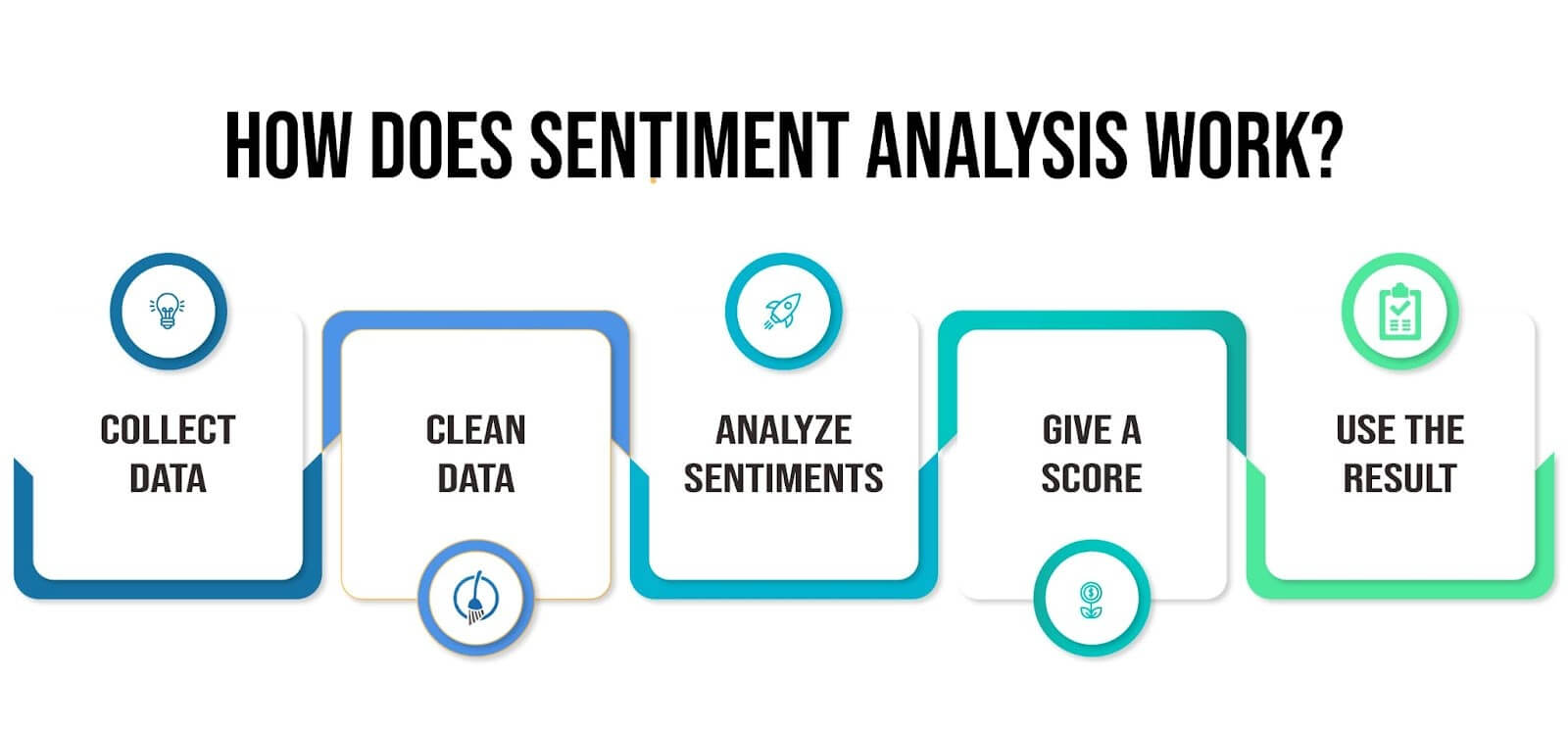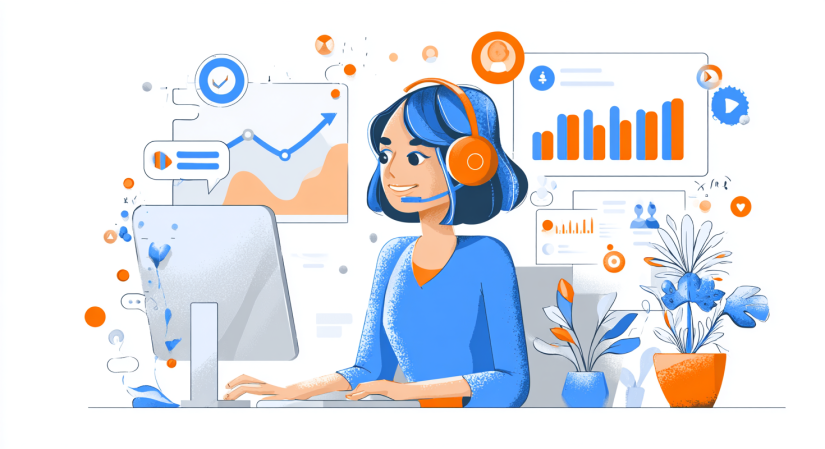Customer service has emerged as a crucial differentiator among competing brands in the rapidly evolving business world. With an increasing emphasis on personalized and efficient service, voice and video call recording technologies have become indispensable tools for businesses aiming to excel in customer interactions.
These technologies are not just about recording conversations but about gaining insights into customer needs, preferences, and behaviors. Voice call recording, primarily used in telephonic conversations, captures the nuances of voice, tone, and verbal cues, providing a wealth of information that can be analyzed to improve communication strategies, agent performance, and, ultimately, customer satisfaction.
In the following blog post, we will delve deeper into how businesses can effectively use these technologies to meet and exceed customer expectations and why companies like Convin are at the forefront of this innovation.
Learn how phone and video call recordings improve customer service with Convin.
What is the Difference Between Call and Video Call Recording Apps?

The difference between call and video call recording apps lies in their functionality, application, and the type of data they capture and analyze. Understanding these differences is crucial for businesses looking to implement these tools for improved customer service and business insights.
10 Ways to Use Call Recordings to Improve Customer Service
Let's delve deeper into each of the 10 ways to use call recordings to improve customer service, integrating use case scenarios and examples and highlighting the use of the targeted keywords.
1. Training and Quality Assurance
- Use Case: A call center uses voice call recording to identify areas where new agents struggle, such as handling demanding customers or explaining complex products. By reviewing these recordings, trainers develop specific modules to address these issues.
- Example: An agent hesitates when asked about a product feature. The recorded call is used in a training session to demonstrate effective ways to handle similar queries.
2. Dispute Resolution
- Use Case: A customer disputes a charge, claiming they were misinformed. The automatic call recorder is used to review the conversation, providing clear evidence of what was communicated.
- Example: The recording shows the agent clearly stated the terms, helping resolve the dispute in the company's favor.
3. Feedback for Product Development

- Use Case: A software company uses feedback from voice calls recorder data to understand user difficulties with a new feature. This informs the next update.
- Example: Multiple customers struggle with a specific software function, as revealed in call recordings, leading to redesigning that feature.
4. Enhancing Customer Understanding
- Use Case: By analyzing phone call recordings, a retail business learns that customers frequently ask about eco-friendly products, leading to a new product line.
- Example: Analysis of recordings identifies a trend in customer preference towards sustainability.
5. Personalized Customer Service
- Use Case: A service provider uses past call recordings to understand a client's preferences and history, offering a more tailored service on subsequent calls.
- Example: A repeat customer can avoid repeating their background or preferences, as the agent has already reviewed their past interactions.
6. Performance Review

- Use Case: Managers regularly review call recordings to assess and improve agent performance, using real examples to provide constructive feedback.
- Example: An agent's improvement over time is tracked through periodic reviews of their call recordings.
7. Legal Compliance and Protection
- Use Case: A financial institution uses call recordings to ensure compliance with industry regulations and to have a record in case of legal disputes.
- Example: Recorded calls indicate that all regulatory information was correctly communicated to the customer.
8. Marketing Insights
- Use Case: A marketing team reviews calls to understand customer language and pain points, using this information to craft more effective campaigns.
- Example: Customers' use of specific terms in call recordings informs the creation of targeted marketing messages.
9. Operational Efficiency
- Use Case: A business analyzes common queries from call recordings, leading to the creation of an FAQ section on its website to address these issues.
- Example: Reduction in call volume as customers find answers online, improving overall operational efficiency.
10. Customer Satisfaction Tracking
- Use Case: Regular analysis of voice call recording data helps a company track changes in customer satisfaction over time and adjust strategies accordingly.
- Example: An increase in customer satisfaction scores correlates with changes made after analyzing call recordings.
In each scenario, using voice call recording, phone recording, and automatic call recorder technologies proves invaluable in enhancing customer service, ensuring compliance, providing training, and gaining business insights. These examples illustrate how integrating such technologies into various aspects of customer interaction can significantly improve service quality and business efficiency.
This blog is just the start.
Unlock the power of Convin’s AI with a live demo.

Why is Call Recording Beneficial for Companies?
Call recording, whether through voice call recording or video call recording apps, offers many benefits for businesses across various industries. Here's an in-depth look at these benefits, along with use case scenarios and examples.
1. Quality Control
- Explanation: Voice and phone call recording apps are vital in maintaining high customer service standards. By reviewing calls, companies can ensure that all customer interactions meet their quality benchmarks.
- Use Case Scenario: A bank uses an automatic call recorder to monitor interactions between customer service agents and clients. Regular reviews of these recordings help the bank maintain a consistent quality of service, addressing any deviations promptly.
- Example: A call center for a telecommunications company might use call recorders to evaluate their agents' clarity, accuracy, and politeness during calls.
Suggested Read: Mastering Quality Assurance for Outstanding Customer Service
2. Training Tool

- Explanation: Voice call recorder apps serve as excellent training tools. New employees can listen to past recordings to understand how to handle various customer scenarios.
- Use Case Scenario: A retail company might use phone recording apps to train new customer service agents by playing back exemplary interactions demonstrating effective problem-solving and customer engagement techniques.
- Example: A sales team could use voice call recordings to train new members on effective sales pitches and handling customer objections.
3. Legal Compliance

- Explanation: Many industries require businesses to comply with specific communication standards. Voice call recording apps can help ensure these regulations are met, protecting the company from legal issues.
- Use Case Scenario: In healthcare, for instance, a clinic might use call recording apps to document patient interactions, ensuring compliance with healthcare privacy laws.
- Example: A financial services firm uses call recorders to record all transactions and advice given over the phone, aligning with financial industry compliance standards.
4. Data Collection
- Explanation: Call recording, including phone and voice call recording, is an excellent data source for business analysis, helping to inform decision-making processes.
- Use Case Scenario: A marketing agency might analyze customer service calls to identify common questions or concerns about their services, guiding their marketing strategies.
- Example: An e-commerce company uses call data to track customer complaints or inquiries about specific products, which helps in inventory management and product development.
5. Customer Insights

- Explanation: Automatic call recorders provide direct feedback from customers. This insight is invaluable for improving products, services, and customer experience.
- Use Case Scenario: A software company might use a call recorder to gather feedback on a new product feature, using customer opinions to make adjustments or improvements.
- Example: A hotel chain uses video call recordings from their virtual receptionist service to understand guest preferences and enhance their hospitality services.
Call recording technologies like voice call recorders, automatic call recorders, and call recording apps offer critical capabilities for quality assurance, legal compliance, training, data analysis, and gaining customer insights. These tools are indispensable for businesses seeking to optimize their operations and customer service.
9 Companies That Provide Call Recording Software
Here are 9 companies that provide call recording software, including Convin, along with details on their products, functionality, and a use case scenario for each:
1. RingCentral
- Product: RingCentral Office
- Functionality: Offers cloud-based phone systems with integrated call recording features. Allows both automatic and on-demand recording.
- Use Case Scenario: A multinational corporation uses RingCentral Office to record international client calls for quality assurance and training purposes, ensuring consistency in customer service across different regions.
2. Aircall
- Product: Aircall Cloud Call Center Software
- Functionality: Provides a cloud-based call center solution with seamless call recording capabilities, easy access to recordings, and integration with CRM software.
- Use Case Scenario: An e-commerce company uses Aircall to record customer service calls, analyze common inquiries and complaints, and improve their online shopping experience based on these insights.
3. Convin
- Product: Convin's AI-Backed Contact Center Software
- Functionality: Specializes in conversation intelligence, offering features such as automated coaching, real-time monitoring, and high transcription accuracy.
- Use Case Scenario: A tech support center utilizes Convin to record calls and analyze them for agent performance improvement, customer experience enhancement, and increasing contact center ROI.
4. 8x8
- Product: 8x8 X Series
- Functionality: Offers a cloud communication platform with a robust call recording feature, which includes secure storage and easy retrieval of recordings.
- Use Case Scenario: A healthcare provider uses 8x8 X Series to record patient calls to comply with healthcare regulations and improve patient support services.
5. Five9
- Product: Five9 Intelligent Cloud Contact Center
- Functionality: Provides an all-in-one cloud contact center solution with voice recording capabilities, AI-driven analytics, and comprehensive reporting tools.
- Use Case Scenario: A financial services firm employs Five9 to record customer calls for compliance and training, using AI-driven analytics to identify areas for improvement in customer interactions.
6. CallRail
- Product: CallRail Call Tracking
- Functionality: This platform offers phone call recording capabilities, aiding businesses in tracking marketing campaign effectiveness and customer service quality.
- Use Case Scenario: A marketing agency utilizes CallRail to record calls from different marketing campaigns, analyzing customer interactions to refine their strategies and improve ROI.
7. Oreka TR
- Product: Oreka TR Total Recording
- Functionality: This is an open-source call recording app that offers both voice call recording and phone call recording. It's designed for easy retrieval and playback of recordings.
- Use Case Scenario: A legal firm uses Oreka TR to record all client calls for legal documentation and compliance purposes.
8. Cube ACR
- Product: Cube Call Recorder ACR
- Functionality: This app offers automatic call recording for both voice and video calls. It's known for its versatility across different communication apps.
- Use Case Scenario: A remote team uses Cube ACR to record important project meetings, and client calls for documentation and future reference.
9. Rev Call Recorder
- Product: Rev Voice Recorder
- Functionality: This is a free call recorder app that provides high-quality recordings with an option for transcription services.
- Use Case Scenario: A journalist uses Rev Call Recorder to record and transcribe interviews for accurate reporting.
Each of these platforms provides unique solutions to cater to the diverse needs of businesses, from marketing and legal compliance to quality assurance and training, utilizing the latest voice call recording technology.
How Can Convin Help Companies with Call Recording?
Convin offers a comprehensive voice call recording and analytics solution that can significantly enhance business customer service and sales performance.
Here's an in-depth look at how Convin can help companies with its advanced features:
1. Automated Quality Management

Convin's software can record and analyze all business calls. This feature is especially useful for prioritizing calls requiring special manual auditing attention. By capturing 100% of customer interactions, Convin provides a holistic view of service quality and performance.
2. Conversation Behavior Analysis
Convin uses AI to analyze the tone of conversations, customer responses, and various other metrics. This analysis can reveal crucial insights into customer sentiments and behavior, which can be leveraged to tailor customer engagement strategies effectively.
Empathy is the practice of understanding people - their feelings as well as their perspectives - and it's an essential tool for a healthy relationship.
3. Automated Agent Coaching

Convin's system evaluates agent performance on calls based on their responses, soft skills, and the topics discussed. The software can then provide near-real-time feedback to agents, enabling them to improve their performance continuously.
4. Agent Assist
.png)
Convin's solution offers real-time analysis during calls, providing agents with immediate feedback on their performance. This feature ensures that agents adhere to policy and regulatory compliance and maintain high-quality customer interactions.
5. Improving Customer Experience

With its sentiment analysis capabilities, Convin can identify factors driving both positive and negative customer experiences, thus helping reduce customer churn rates.
By integrating seamlessly with existing call and lead tracking systems, Convin provides a robust solution for voice call recording and analysis. Its AI-driven capabilities make it a powerful tool for businesses looking to enhance their customer service and sales operations.
Schedule a call with us to explore Convin's innovative solutions and take the first step toward redefining your customer service and communication strategy. Elevate your customer service to new heights with Convin!
FAQ
1. Are call centers required to record calls?
Call centers often record calls for training, quality assurance, and compliance reasons. The decision to record calls also depends on the legal requirements of the state or country in which the call center operates. In the U.S., for instance, different states have different laws regarding call recording consent.
2. What is call recording in a call center?
Call recording in a call center involves digitally capturing phone calls, typically for the purposes of quality control, training, legal compliance, and analytics. Modern call center systems often include built-in call recording features.
3. Which is the best call recording software for call centers?
Identifying the "best" call recording software can vary based on specific needs. Popular options include RingCentral, which provides integrated call recording in its cloud-based system, and Aircall, known for its user-friendly interface and CRM integration capabilities. Convin is also notable for its AI-driven analytics and automated quality management.
4. How are call recordings used in sales companies?
In sales, call recordings are used to analyze customer interactions, train sales representatives, improve communication strategies, and gather insights for product development and marketing strategies.
5. How are demo video call recordings used in sales companies?
Demo video call recordings in sales are often used for training purposes, to demonstrate product features to potential customers, and to review and improve sales techniques. They provide a visual and auditory record of customer interactions, which can be invaluable for sales strategy and training.




.webp)



.avif)